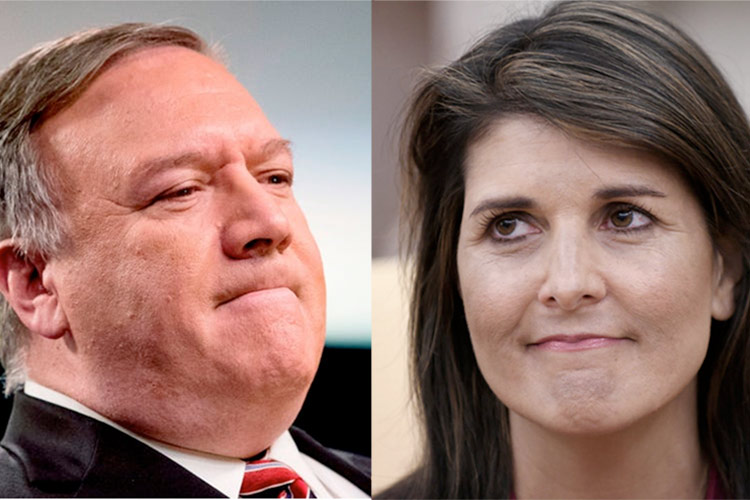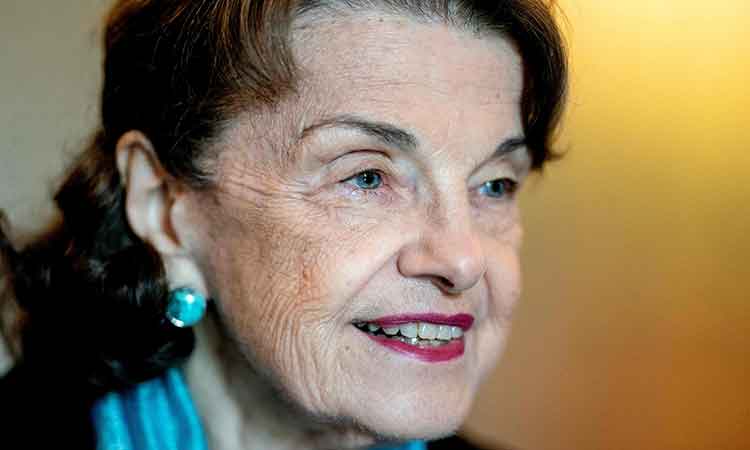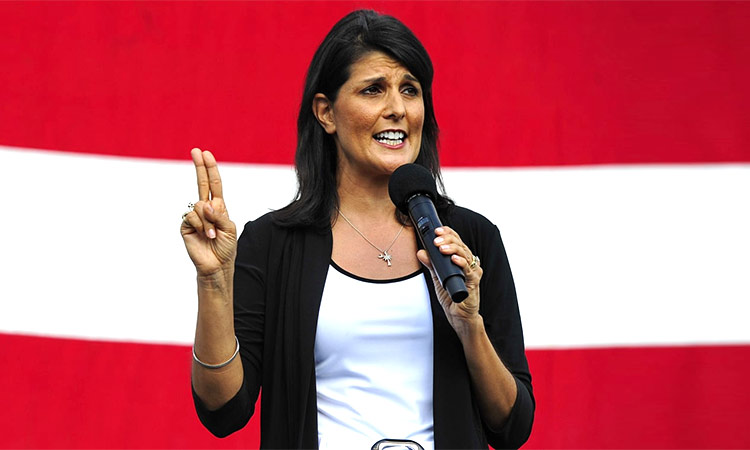History speaks volumes against immunity from prosecution

Amy Coney Barrett
Bruce Fein, Tribune News Service
On April 25, former President Donald Trump argued to the United States Supreme Court that the Constitution crowned him absolute immunity from criminal prosecution for acts taken during his presidency. The facially alarming argument made startling headway with conservative Justices Clarence Thomas, Samuel Alito, Neil Gorsuch, Brett Kavanaugh and Amy Coney Barrett. They characteristically tout canons of constitutional interpretation that would slay Trump’s immunity argument without breaking a sweat: textualism, originalism, deference to constitutional assumptions of the political branches and history. All four, singly or collectively, are fatal to the idea that presidential crimes — ranging from treason, bribery and insurrection to assassinations, torture and kidnapping — are shielded from prosecution.
Start with textualism. Not a word in the Constitution suggests presidential immunity. Search Article II, which addresses executive power. It obligates the president, among other things, to faithfully execute the laws, which implies a prohibition on flouting the laws. Further, the text of Article I, section 6, confers immunity on members of Congress from prosecution for actions taken in their legislative capacities. The absence of corresponding text in Article 2 is compelling evidence that no immunity exists for the president. Article 3, which addresses judicial power, likewise is naked of text immunising federal judges, including Supreme Court justices, from criminal prosecution. Federal judges Otto Kerner, Alcee Hastings and Martin T. Manion were indicted or prosecuted during or after holding judicial office. Originalism also defeats Trump’s criminal immunity claim. Thomas Paine, voice of the American Revolution, wrote in “Common Sense”: “For as in absolute governments the King is law, so in free countries the law ought to be King and there ought to be no other.”
Indeed, the American colonies revolted against the British Empire doctrine that the King can do no wrong. No member of the constitutional convention, no member of state ratifying convention, and no commentary surrounding ratification of the Constitution hinted at presidential immunity from criminal prosecution. If that idea had surfaced, it would have been the death knell to ratification.
History also speaks volumes against immunity. Trump is the first former president in 235 years to argue for immunity. Former President Richard M. Nixon confronted the prospect of prosecution for obstruction of justice or related Watergate crimes by special prosecutor Leon Jaworski until President Gerald Ford issued a blanket pardon. Nixon’s acceptance of the pardon tacitly acknowledged guilt. With just hours left in office, President William Jefferson Clinton concluded a deal with the independent counsel Robert Ray to avoid indictment for his misleading statements about Monica S. Lewinsky. In exchange, Clinton made a forthright admission that he gave false testimony under oath. The longstanding view of the US Justice Department also militates against criminal justice immunity for former presidents.
In 1973 and in 2000, the Department’s Office of Legal Counsel (OLC) opined against immunity. The latter asserted, among other things, “Recognising an immunity from prosecution for a sitting President would not preclude such a prosecution once a President’s term is over or he is otherwise removed from office by resignation or impeachment.” OLC opinions command special respect in regard to executive power because its mission is to strengthen the constitutional hand of the president. I know. I served as special assistant to the assistant attorney general for OLC during the Nixon administration. An indeterminate number of senators voted against impeaching Trump at his second impeachment trial on the assumption that he could be prosecuted for crimes he committed as president.







